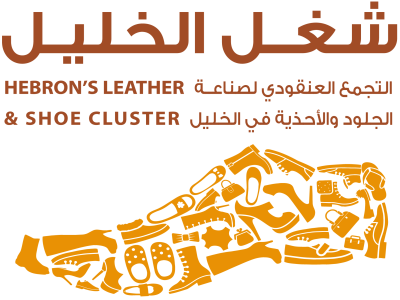
Receiving His Excellency the Palestinian Minister of Industry, Mr. Arafat Asfour
The President of the Federation of Palestinian Leather Industries and the President of Hebron leather and shoes cluster Mr. Amer Arafa received His Excellency the Minister of Industry, Mr. Arafat Asfour, in the presence of the President of the Federation of Palestinian Chambers of Commerce and Industry, Mr. Abdo Idris, the Director General of the Standards and Metrology Institution, Eng. Haider Hajjah, the Vice President of Palestine Polytechnic University, Dr. Islam Hassouna, representatives of the General Federation of Industries, represented by a group of heads of specialized unions and the Secretary General of the Union. His Excellency began his tour with a visit to the Royal Shoes Factory, then to the Leather and Footwear Products Development Center and the Hebron Job Exhibition, and this included a meeting with a group of shoe manufacturers at the headquarters of the Hebron Chamber of Commerce and Industry.
Mr. Arafa briefed His Excellency the Minister on the most important challenges facing the shoe and leather industry in light of the current circumstances, and the importance of applying the mandatory technical instructions for shoes approved since 2019, and the need to support the craft village as a strategic project that will represent a qualitative leap for the industrial sector in general, in turn, Mr. Abdo Idris stressed the need to support the industrial sector, especially the shoes and leather sector, and the need to work in integration between the private sector and the government to overcome the difficulties and challenges experienced by the industrial sector. , without disturbing the balance between trade and industry. For his part, His Excellency indicated that the Ministry of Industry is working to direct donor countries to support the industrial sectors, including the shoes and leather sector, as well as the mandatory giving preference to the national product in government tenders, and indicated that the Ministry seeks, through the Palestinian Standards and Metrology Institution, to overcome trade obstacles with Arabic countries by signing accreditation agreements for tests and specifications, such as the agreement signed with Saudi Arabia.
Mr. Arafa briefed His Excellency the Minister on the most important challenges facing the shoe and leather industry in light of the current circumstances, and the importance of applying the mandatory technical instructions for shoes approved since 2019, and the need to support the craft village as a strategic project that will represent a qualitative leap for the industrial sector in general, in turn, Mr. Abdo Idris stressed the need to support the industrial sector, especially the shoes and leather sector, and the need to work in integration between the private sector and the government to overcome the difficulties and challenges experienced by the industrial sector. , without disturbing the balance between trade and industry. For his part, His Excellency indicated that the Ministry of Industry is working to direct donor countries to support the industrial sectors, including the shoes and leather sector, as well as the mandatory giving preference to the national product in government tenders, and indicated that the Ministry seeks, through the Palestinian Standards and Metrology Institution, to overcome trade obstacles with Arabic countries by signing accreditation agreements for tests and specifications, such as the agreement signed with Saudi Arabia.
Publish Date: 2024-08-11











